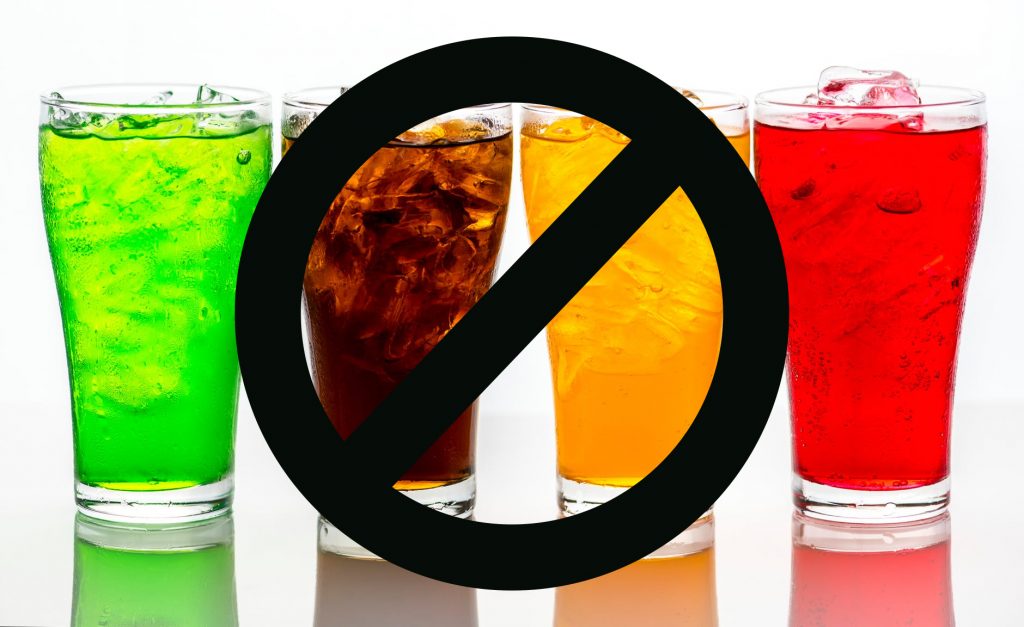9 Nutrition Myths | Part 1
Looking for weight loss and overall health in the digital age can be a mixed blessing. Technology, on one hand, is a threshold to endless potential weight loss diets, nutrition facts, health and fitness approaches.
 But, on the flip side, it can be difficult to know what to follow and what activities could supercharge your health and fitness.
But, on the flip side, it can be difficult to know what to follow and what activities could supercharge your health and fitness.
Take a look at some common nutrition myths…
Myth#1: A Gluten-Free Diet is Healthier.
What it is: Diet that excludes gluten content in food. Gluten is a wheat protein.
What it is not: Gluten-Free Diet is not a Guilt-Free Diet
Fact: Replace gluten-free diet with a Low-Gluten Diet with High Fiber as a better alternative.
A gluten-free diet is beneficial for people suffering from Celiac Disease (an autoimmune allergic response to the gluten protein found in wheat, rye and wheat products).
A recent study (1) suggested a low-gluten diet with high fiber has a beneficial health effect on our microbiome (gut bacteria composition in the intestine) that improves healthy gut bacteria. These changes in intestinal function alleviate bloating.
Research (2) suggests that there is modest weight loss with both low-gluten, high fiber diet over a high-gluten diet.
Studies have previously shown improvement in the condition of irritable bowel syndrome (IBD) and other gastrointestinal symptoms (bloating, constipation, stomach cramps). These are the gastrointestinal disorders that prevail in about 20% of the Western population.
A long-term study is needed to establish the beneficial effects of a low-gluten diet in healthy individuals. Although, intake of the low-gluten diet is prevalent in the general healthy population to aid in weight loss and lessen intestinal discomfort caused due to gluten insensitivity.
Mostly, a gluten-free diet available in the market is deprived of fiber and nutritional content. Nutritional composition of a gluten-free diet can be enhanced when it is high fiber enriched and minimally processed, for those who prefer a low-gluten diet.
Benefits:
- Improves healthy gut bacteria
- Combat excess weight and intestinal discomfort
- Less bloating was observed in some healthy individual and along with IBS.
Tip: Replace fiber from wheat and rye with fiber from vegetables, brown rice, oats, quinoa, and corn.
My Advice: Check for gluten-free ingredients carefully.
Myth#2: It is healthy to lose weight with the low carbohydrate diet.
What it is: A quick-fix for weight loss
What it’s not: A long-term weight loss approach
Fact: Some carbs are good for your health and some aren’t.
Sugar is a bad carbohydrate and fiber is a good carbohydrate present in whole grains and oats, says Professor Jim, University of Otago. Therefore by cutting carbohydrates from your diet, you are also cutting down fiber that affects your health in the long-term.
High carbohydrate diet is good if it’s high in fiber, as it has protective effects on heart and gut. As WHO explains, a diet high in fiber (whole grain pasta), nuts and pulses will cut down chances of heart disease and aids healthy weight loss.
Tip: Dividing the number of carbohydrate per serving by number of grams of fiber can give you insight for good carbohydrate foods.
Cut down on added sugars, processed foods, and carbonated drinks. Add minimally processed foods in your diet. Try quinoa, amaranth, farro, millet in addition to brown rice and whole wheat products.
Myth#3: Cut fat for weight loss
What it is: Diet devoid of essential fats
What it is not: Healthy approach to eating
Fact: As per various studies, it has been proven that fat isn’t always the culprit when it comes to extra inches around your waistline.
It’s good to stay away from fried and processed foods as they are high in trans fat. Trans fat is found in foods cooked in partially hydrogenated oil (a type of “bad fat”). Such a diet increases your risk factor for developing cardiac disease by 12%, according to a study published in the British Medical Journal.
Take note of the good fats that improve health and aids in weight loss.
Good fats include: Healthy fats such as polyunsaturated fat (PUFA) and monounsaturated fats (MUFA) — they help lower bad LDL cholesterol and improve good HDL cholesterol. Polyunsaturated fats include vegetable oils, omega-3 fatty acids found in fish, nuts and seeds. Monounsaturated fats include avocado, plant origin oils like canola oil, olive oil.
Add healthy nuts and seeds rich in good fats (MUFA and PUFA) to your diet to improve heart health, lower inflammation, maintain healthy skin and hair.
Tip: Keep healthy nuts and seeds in your kitchen and bag as snacks.
Myth#4: Juices aids in weight loss
Fact: Juicing is not the right way to lose weight long-term, says Amy Gorin, MS, RDN. Relying on juices depletes you from protein and healthy fats required by your body for proper functioning.
Even 100% fruit juice adds more calories to your meal, along with other sweetened beverages. A 2011 Harvard study explains, sugar-sweetened beverages are linked to long-term weight gain, therefore stick to not more than one small glass of juice a day.
Juices fill you with only carbohydrates that are easily digested, making you feel hungry again. Whereas, protein and healthy fats keep you full for a longer duration and delays hunger.
 People include a lot of sugar-sweetened drinks in their diet. According to a study consumption of sugar-sweetened beverages is about 63% in children and 49% in adults. This forms the major source of added sugar that provides calories without nutrients.
People include a lot of sugar-sweetened drinks in their diet. According to a study consumption of sugar-sweetened beverages is about 63% in children and 49% in adults. This forms the major source of added sugar that provides calories without nutrients.
Home-made smoothies without sugar, plain green tea, infused water are a better alternative to provide ample an amount of nutrients.
It is recommended to eat a well-balanced diet that comprises of fruits and vegetables, whole grains, healthy fats, along with non-sweetened beverages.
Good protein like salmon and chickpeas are great picks. Also avoid foods that add empty calories and no nutrition, such as alcohol, fizzy drinks etc.
Eat food as a whole, rather than liquid form, as it leaves you much fuller. Simple fruit juices are loaded with sugars and high in calories. One bottle of cola has 200 calories, and one cup of apple juice is around 115 calories. One can of beer has 154 calories with no significant nutrition content.
Myth#5: Dieting is a good way to lose weight
What it is: Modest to severe food restriction
What it is not: Magic pill to lose weight
Fact: Focus on what works — healthy eating behavior to maintain a healthy weight.
Why dieting doesn’t work? It is an outdated and ineffective approach to weight loss. If you want to be healthy, you need to get of this relic and find a new approach! Dieting posses little significance today, as calorie restriction leads to undernourishment and calorie-dense but nutrient deficient food leads to malnourishment.
Don’t neglect colors in your diet: Fruits and vegetables are loaded with nutrients to provide you with vitamin A, B, K and minerals such as fiber, iron, carotenoids, and anti-oxidants, says clinical dietician Beth Morris.
Time is the key: It’s good to change your eating pattern rather foods. A study says to eat within a 12-hour window to let your body perform repair and regenerative activities at night. This process works within the biological clock of 24 hours.
For example, if you eat breakfast at 8:00am, then eat your dinner before 8:00pm. This helps your body overcome inflammation and disease.
My advice: Cook your meals more often at home. This will help you develop a healthy relationship with your food. You’ll enjoy the taste, flavors, aroma of your meal more than counting each calorie!
Part 2 Next Week!
Reprinted with permission from Akanksha Srivastava. Originally printed on healthrewardz.com.
Akanksha Srivastava is a Nutritionist, content writer & a food blogger. She is a life member of the Nutrition Society of India (LM No. LM-2018-0284). Her website, healthaadhar.com, is not just a hub of information which imparts views on health & nutrition related topics backed with scientific research papers, but a journey where everyone associated is a part of an endeavor through educative article beyond health. With a significant focus on the holistic approach to health and well-being, her blog successfully forays into empowering people with healthy eating behavior.
References
- (1) https://medicalxpress.com/news/2018-11-low-gluten-high-fiber-diet-healthier-gluten-free.html
- (2) https://www.nature.com/articles/s41467-018-07019-x
-
https://www.amydgorin.
com/ -
https://www.bmj.com/
content/351/bmj.h3978 -
https://www.cdc.gov/
nutrition/data-statistics/ sugar-sweetened-beverages- intake.html -
http://phs.bwh.harvard.
edu/phs2.htm -
https://hms.harvard.
edu/sites/default/files/ assets/Sites/Longwood_ Seminars/Nutrition_3_5_13.pdf

